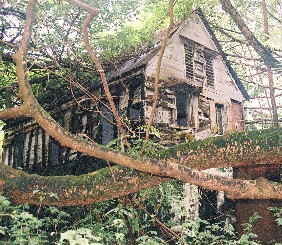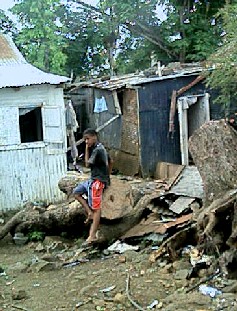|
Indian Ocean | Mauritius Society | Human rights London again delays Chagossian return
The Chagossians were tricked and forced away from their Indian Ocean island paradise during the 1960's and 70s and the British colonial government leased the strategically placed archipelago to the US. In 1971, the Americans started constructing a marine base on the main island, Diego Garcia, and two years later, the last Chagossian was expelled.
On Monday, the Foreign Office nevertheless again asked the Lords for permission to appeal against last month's High Court judgement. According to Tony Humphries at the Overseas Territories Directorate, "we expect the case to be heard by the House of Lords in 2008," if permission is granted. Thus, a return will be delayed for at least yet another year. For many Chagossians, this may come too late. Of the 2,000 expelled islanders, only a few hundreds are still alive. Most Chagossians living today have never set foot on their islands. Most of the forcedly removed population has been living in poverty in nearby Mauritius, which also was a British colony at the time of their eviction. Some 60 percent of Chagossians in Mauritius are still unemployed and death rates have been extraordinarily high. Islanders say many have "died of sadness". Most of the elders have expressed a strong wish to be able to return and die on their island of origin. Chagossian activists in Britain and Mauritius are therefore outraged by the new delay tactics of the London government. Celia Whittaker of the UK Chagos Support Association told afrol News that the new move is "grossly unfair" to Chagossians. "They have now lost three times. Will they never give up and do the right thing?" she asks. While this is the last possible chance of the British government to appeal the ruling, Ms Whittaker is "both angry and upset" on behalf of Chagossian elders pinning their hopes to a last possibility of returning home. The new appeal "could take a few months. If they are given leave to appeal, then that could take a lot longer," she fears. The activists now have appealed to the new British Prime Minister, Gordon Brown, "to take decisive action to prevent further injustice." Mr Brown has already signalled his intention to review the royal prerogative - the little-used sovereign power, which UK authorities argue, gives them the right to exclude the Chagossians from their homeland in perpetuity. Chagossian activists hope the new PM will stick to his words. By staff writers © afrol News - Create an e-mail alert for Indian Ocean news - Create an e-mail alert for Mauritius news - Create an e-mail alert for Society news - Create an e-mail alert for Human rights news
On the Afrol News front page now
|
front page
| news
| countries
| archive
| currencies
| news alerts login
| about afrol News
| contact
| advertise
| español
©
afrol News.
Reproducing or buying afrol News' articles.
You can contact us at mail@afrol.com









